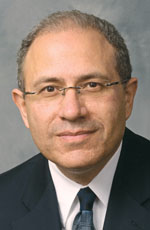
Pallotta
Testimony of Andrew Pallotta, Executive Vice President, New York State United Teachers to the Assembly Standing Committee on Higher Education Hon. Deborah J. Glick, Chairperson on Closing the College Achievement Gap
December 14, 2010
Chairperson Glick, honorable members of the Assembly Higher Education Committee and distinguished staff, I am Andrew Pallotta, Executive Vice President of New York State United Teachers (NYSUT). NYSUT represents more than 600,000 teachers, school-related professionals, academic and professional faculty in higher education, professionals in education, in health care and retirees statewide. My testimony today represents the concerns of 68,000 faculty and professional staff who work in colleges and universities across New York State. These include the members of United University Professions at the State University of New York, the Professional Staff Congress of the City University of New York and the faculty and staff at nearly all the SUNY community colleges in this state.
I am joined today by Dr. Phillip Smith, President of United University Professions (UUP), and by Dr. Barbara Bowen, President of the Professional Staff Congress (PSC). You will hear from both Dr. Smith and Dr. Bowen in a few moments.
Thank you for convening these public hearings and for the opportunity to testify today. I also want to thank you Chairperson Glick, the Speaker, the members of the Assembly Higher Education Committee, your colleagues in the Assembly and the Assembly staff for your continued support for public higher education. The Assembly has always supported and protected the missions of our public higher education institutions to provide an affordable, accessible, quality education for our students.
It is abundantly clear that in today's knowledge based economy, in order for individuals to obtain good paying jobs they must first have access to quality higher education and complete a course of study to obtain a college degree. The completion of a college degree is no longer just a laudable goal but an imperative for individual success and ultimately our state's success.
Closing the Achievement Gap in public education from pre-k to post-graduate education is a major priority for NYSUT. In higher education, the public discourse recently has focused on the role SUNY and CUNY can play in economic development through public/private partnerships, selling and leasing land, and other regulatory changes.
NYSUT firmly believes that this has served as a distraction from focusing on what our real priority should be which is to fulfill the statutory missions of SUNY and CUNY. That is, getting as many students admitted to SUNY and CUNY as possible and providing those students the academic resources they need to graduate. I submit to you that improving graduation rates so that more highly educated and skilled individuals can enter the workforce is real economic development and is exactly what our state needs.
As educators, we know what works. First, we need to provide student access to higher education. The Tuition Assistance Program and higher education opportunity programs such as EOP, SEEK, College Discovery, STEP and C-STEP have served as invaluable tools to achieve this goal. The Assembly has always protected these important programs and for that we are grateful.
In addition, we know that small class sizes, quality instruction, faculty/student advisement and remediation for students at-risk are all important factors for retaining students and enabling them to graduate. While faculty and staff at SUNY, CUNY and our community colleges are doing miraculous work every day to provide and maintain quality academic programs and services for their students, the fact is that the deep budget cuts sustained over the last couple of years have taken their toll on access, quality and graduation rates.
Since 2008, SUNY, CUNY and the community colleges have taken nearly a $1 billion in cuts. While we are fully cognizant of the state's economic situation, these cuts are disproportionate to any other state agencies during this time period. These cuts have limited student access as thousands of students have been denied admission to our four-year schools and they have jeopardized the full-opportunity status of our community colleges. Moreover, while part-time faculty members play important roles on our campuses, the overreliance on them has had negative effects. The lack of adequate numbers of full-time faculty who are responsible for the development of curriculum, advising students and providing extra help to at-risk students has eroded quality and has negatively affected student graduation rates.
Meanwhile, as the full-time faculty ranks have decreased, student enrollment has skyrocketed during this economic downturn. Huge budget reductions, more students, less full-time faculty, huge class sizes, programs and class offerings eliminated and/or reduced is not a formula for success in eliminating the college achievement gap and increasing our graduation rates.
Again, we understand the current economic climate and the size of our state's budget deficit however, we urge you to do whatever you can to hold SUNY's, CUNY's and our community colleges' operating budgets intact next year.
Ultimately, if we are going to move closer to closing the college achievement gap more resources are required to be allocated to our public higher education institutions. We simply cannot afford further cuts and expect better results.
Thank you once again for the opportunity to testify today. I will now turn it over to Dr. Smith who will be followed by Dr. Bowen.